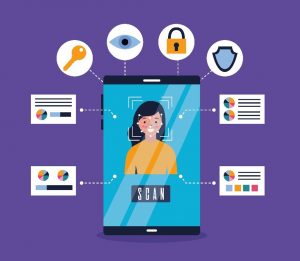
With the rapid increase in data breaches occurring daily, so much so that a cyber-attack occurs once every 39 seconds, cyber security measures have become necessary, especially for debt collection agencies. Since these agencies hold such treasured data of their valuable customers, including creditors and debtors, they must ensure proper cyber security measures in their operations and everyday routines.

A cyber-attack is a security breach that proceeds through unethical means for malicious intents and purposes. According to statistics, these cyber-attacks are increasing rapidly.
These attacks can be severely harmful, especially for debt collection agencies, as these companies hold sensitive data that can harm the consumers and the companies involved.
And with the upward trajectory of debt in the US alone, increased cyber security measures are becoming necessary. In 2024 alone, the cost of cybercrime in general was a staggering USD 9.5 trillion, which will increase to USD 10.5 trillion in 2025. The frequency of such data breaches will continue to rise, and therefore, countermeasures in cybersecurity are a must.
The acknowledgment and the consensus of what cyber-attacks are is one thing, but preventing them is a whole different ball game. There are multiple avenues that debt collection agencies can take to ensure they acquire the required cyber security measures that will be helpful against severe data breaches.
One of the basic steps that debt collection agencies can take is the implementation of the various authentication routes available that will act as proactive cyber security measures.

In the increasing data breaches caused by impersonation and incorrect authentication, it is vital to ensure authentication procedures and policies are present at all ends. Multiple avenues are available to ensure proper authentication, which is as follows:
The old true and tested Single Factor Authentication refers to using a single medium of protection as a cyber security measure that generally involves a username followed up by the respective password.
Single-factor authentications have been widely used by companies of all industries across the globe for the past couple of decades. In the case of debt collection agencies, creditors hold the data involving personal information related to the respective debtor, which is granted to the collection agencies. The collection agencies are, in turn, responsible for the protection of the said data, which can be easily protected through SFAs. Although SFAs are a common channel of safeguarding data across multiple industries, it is compulsory to overview the pros and cons they bring.
Stepping up the ladder from the SFAs, Two Factor Authentication is much more reliable than the previously mentioned SFAs. The 2FAs involve the implementation of single-factor authentications followed by another layer of security. This can act as a double password for the users if the first defensive layer gets breached due to human error or a cyber-attack.
This route of authentication provides flexibility as well as security as Two two-factor authentications can be anything the user desires, ranging from a code, a single question-answer basis authentication, or even an external SMS or an additional verification email, which is highly used in the case of two-factor authentication in recent days. Like the case of single-factor authentication, 2FAs also consist of certain advantages and disadvantages that debt collection agencies must consider while applying such authentication to their client’s data.
The best amongst the authentications available, which is now considered the industry standard for cyber security measures, is termed multiple-factor authentication. The trend in MFAs has seen such a rise that a market size of approximately USD 38.90 billion is expected by 2029. This class of authentication builds upon the previously discussed SFAs and 2FAs to ensure that the user who is trying to access the data is authorized personnel.
The MFAs are regarded as a must across many top debt collection agencies solely because they follow the currently placed security regulations across the globe. The need for such rules and laws, especially for collection agencies, has been put in place given the recent increasing number of data breaches.
MFAs can require users to submit in-person security information such as a fingerprint scan or a voice recognition security layer. Just as in the case of 2FAs, MFAs can also be used to implement multiple user-based questions in the form of a mini-questionnaire that ensures the verification of the user.

The other half revolves around the steps and actions to take in case of a cyber-attack. And while we at Cedar Financial take immense pleasure in heaving said protocols in case an uncertainty such as a cyber attack does happen (which is highly unlikely), here are some response plans and strategies that can be used to ensure optimal security reactions in case of a data breach.
Personnel in charge of such high data should be given proper training regarding a security breach as a means of increased cyber security measures.
A specific team should be employed regarding said security breaches in hopes of recognizing and optimally tackling a security breach as early as possible.
Keeping an eye out for unusual anomalies should be on the checklist of the everyday employees and the response team. Ideally, predictive analysis and countermeasures should be used to pin down any patterns that eventually lead to cyber data threats.
Proper Encryption across all data sets in debt collection agencies is a vital part of proactive cyber security measures that ensure that the data cannot be read or deciphered by unauthorized personnel.
Encryptions can also be phrased in terms of sure firewalls that can be placed to establish a framework that forbids any data leakage during data transfer, as well as day-to-day communication that can include user-sensitive information. These encryptions offer variations and flexibility, as seen in the case of authentication routes, which allows the users and security personnel to implement optimal measures to improve cyber security.
Symmetric Encryption involves the implementation of a single key that must be used by both parties in a debt collection agency to access and read the relevant information.
Asymmetric Encryption involves the same framework as symmetric Encryption, including an additional public key and a single key to cipher and decipher the data to be accessed.
End-to-end Encryption is primarily used in communication channels. It involves tampering with data at its core to ensure that the messages being sent are encrypted until they reach the intended user. This is done by converting said messages into tampered cipher text, which can only be reversed by the receiver’s deciphering key.
Implementing such verification procedures helps safeguard the company’s intellectual assets and improves communication between the agency and the respective clients.
While in-house security is usually said to be the best course of action, especially for debt collection agencies, when it comes to stringent cyber security measures, multiple third-party service providers solely focus on providing security to their respective clients against malicious data breaches.
That being said, the responsibility of doing a profile check related to the selected third-party service provider falls on the debt collection agencies themselves, which requires them to have a specific set of metrics that these service providers either follow or should follow for the potential partnership to prosper for the well-being of highly sensitive data.

